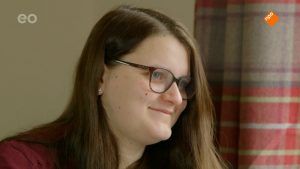If you catch this early, you have a greater chance of recovery, says Van den Akker. “Once they have had this for years and once they reach young adulthood, it only gets worse and causes more damage to the body. When that happens, it will have become an irreversible process. While at that time they should be in the prime of their lives.” That is why Van den Akker advocates tackling obesity as early as possible. “Especially in children, the body has enormous recovery capacity and resilience. If you catch it early, it can fly away. You want to seize that opportunity.”
Preventive care
Preventive care is essential and starts with the child. “When it comes to prevention, people often only think that society needs to become healthier. That is true, but we must realize that treating a child with obesity is also prevention. By treating obesity in the child, you prevent the child from becoming obese as an adult and all kinds of diseases that come with it. The longer that exists, the harder it is to go away.”
It goes much further than just damage to health in the medical field. Obesity also has major social and psychological consequences. “We see teenagers who no longer get out of bed, with depressive complaints. They are too tired and therefore drop out of school or internship. And that also has a social impact. Their job prospects diminish before they even start. That has consequences for society as a whole.”
‘One in seven Dutch young people suffers from depressive complaints’Also read
Current lifestyle
Why are these numbers growing so fast? “The world is changing. In the world we live in, the living environment has become less healthy, which has made our lifestyle less healthy,” explains Van den Akker. “Half of the children do not meet the Dutch standard for healthy exercise. That’s one hour of physical exercise a day, and that’s the minimum. I’m not just talking about sports, but daily movements, such as cycling, walking and playing outside. That is perhaps even more important.”
And not only that, the standard for fruit and vegetables is also barely achieved. “The standard for primary school children is 150 grams of vegetables and for secondary school children 200 grams, plus two pieces of fruit per day. Three quarters of children do not meet these requirements, and this is only increasing.”
Big consequences
The World Obesity Federation has predicted that by 2035 half of the world’s population will be overweight. “In the Netherlands this is already the case among adults. Half a million children are overweight.” And Van den Akker notices the consequences of this. “We always have to increase the number of consultation hours due to the waiting lists. Every year we have to provide more care, even though there is already a shortage of healthcare personnel. That is a huge challenge.”
‘More than half of the world’s population will be (much) overweight by 2035’Also read
It doesn’t stop there: the costs are increasing enormously. “Partnership Overweight Netherlands has calculated the costs for adults with Maastricht University. They have calculated that the costs of the consequences of obesity amount to 79 billion per year. That excludes child costs and increasing growth. The impact of obesity on healthcare, public health and society is unsustainable in the longer term.”
Problem solving
Van den Akker explains how the problem can be tackled. “First you have to understand what the cause is,” she says. And it’s not that simple. “We know that the unhealthy living environment is the cause of the obesity epidemic. But there are many influencing factors. Not only too much food and little exercise, but also stress, little sleep, the role of parents, children’s marketing and unhealthy food providers at schools. If you want to tackle that, there is not a single string to your bow that you can aim at.”
“There is a task at all levels. For doctors, the government, the food industry, but also municipalities and schools. Municipalities must ensure sufficient exercise opportunities in the area. Schools must ensure that unhealthy food providers are excluded. They can provide a healthy lunch and plenty of outdoor play opportunities. Parents can create a healthy living environment and must set a good example. They can also enter into discussions with their school and show initiative for a healthier policy.”
 With school lunch and exercise, fewer overweight children, according to RIVMAlso read
With school lunch and exercise, fewer overweight children, according to RIVMAlso read
Medicines
According to Van den Akker, doctors also have a great responsibility. “If they see a child during a consultation who is clearly obese, doctors should not ignore it. Seize the opportunity to provide care to those children. The first step is the lifestyle approach. If that does not work sufficiently, there are special obesity outpatient clinics where pediatricians specialize in childhood obesity. Nowadays there is also a lot of development in the field of medicine.”
“That medicine is an intestinal hormone that affects the brain. This medicine tries to correct that disruption in the hormone balance,” she explains. “It was first shown that it works well in adults. It has also been studied and found safe in children aged 12 years and older. The only problem is that it is not yet reimbursed in the Netherlands for people under the age of 18. That makes it even more difficult to prescribe. So there are many new developments in the field of medicines. This can help us to really do something about it.”
Future
Van den Akker notices all too well that this takes a lot of time. “I have seen how much work and effort goes into setting up everything. But a lot of good things are happening, in all kinds of areas. I am convinced that we can solve this, but it is not simple,” she emphasizes. “When I was trained as a pediatrician twenty years ago, obesity was not a topic in healthcare. It just didn’t exist in my training.”
Despite her concerns, Van den Akker has hope. “I think obesity is the social problem of now and the future, but we are also at the beginning of a huge revolution in knowledge and care about it. This means that today’s doctors are entering a completely new world. We are increasingly seeing better and understanding what is needed for this. And for that we need people who approach the entire system from all kinds of perspectives and disciplines.”
 Evie is sixteen years old and weighs 136 kilos: ‘I don’t know if I will still be alive in ten years’Also read
Evie is sixteen years old and weighs 136 kilos: ‘I don’t know if I will still be alive in ten years’Also read
Tags: children obesity #7yearold children fatty liver disease
-







